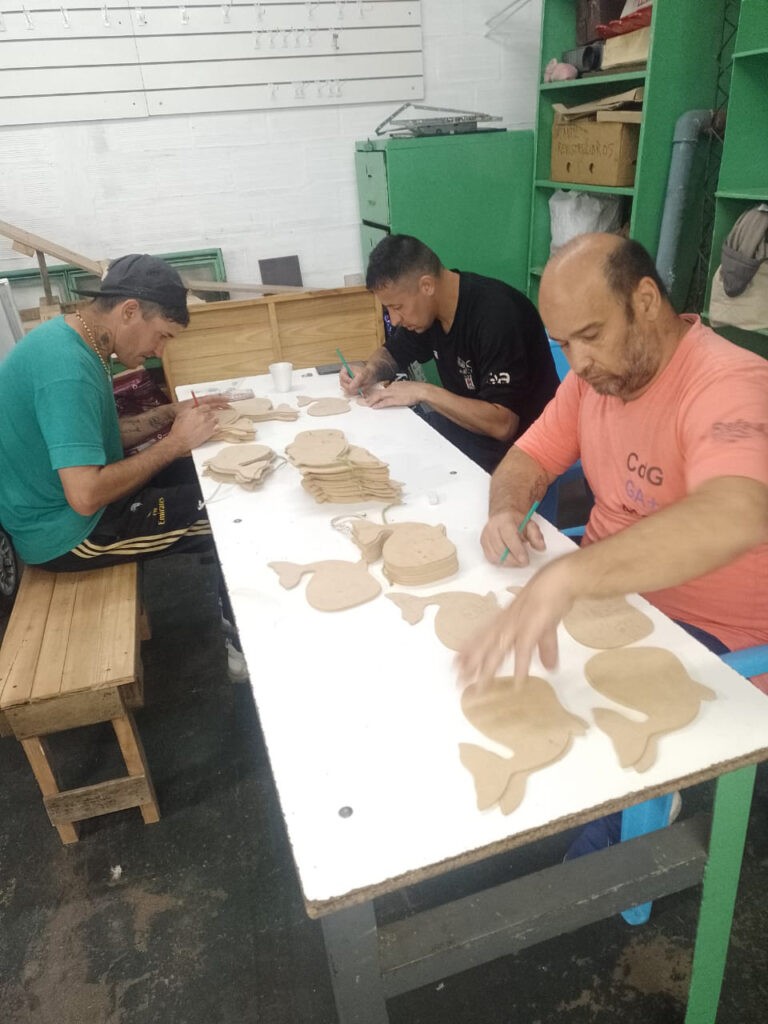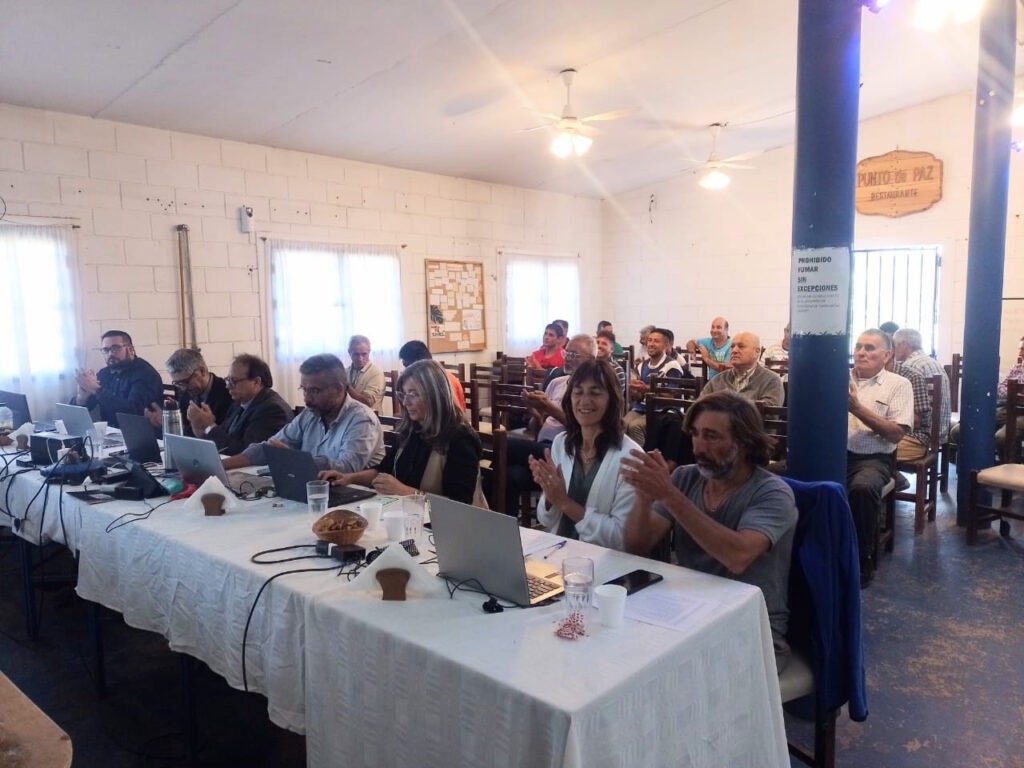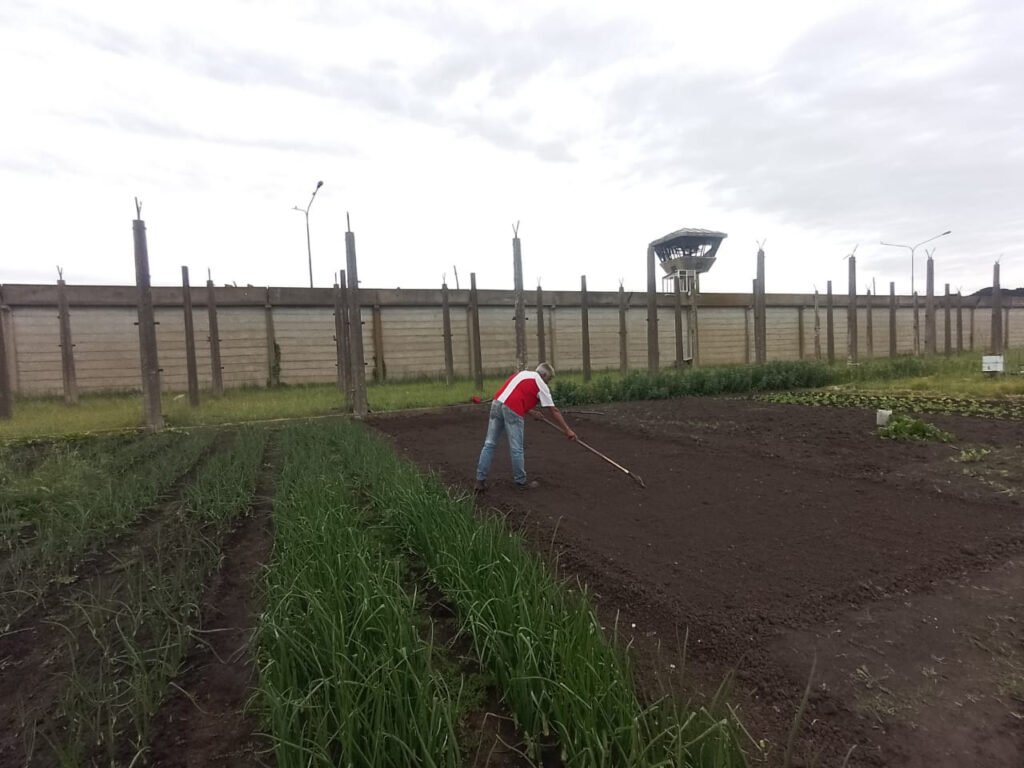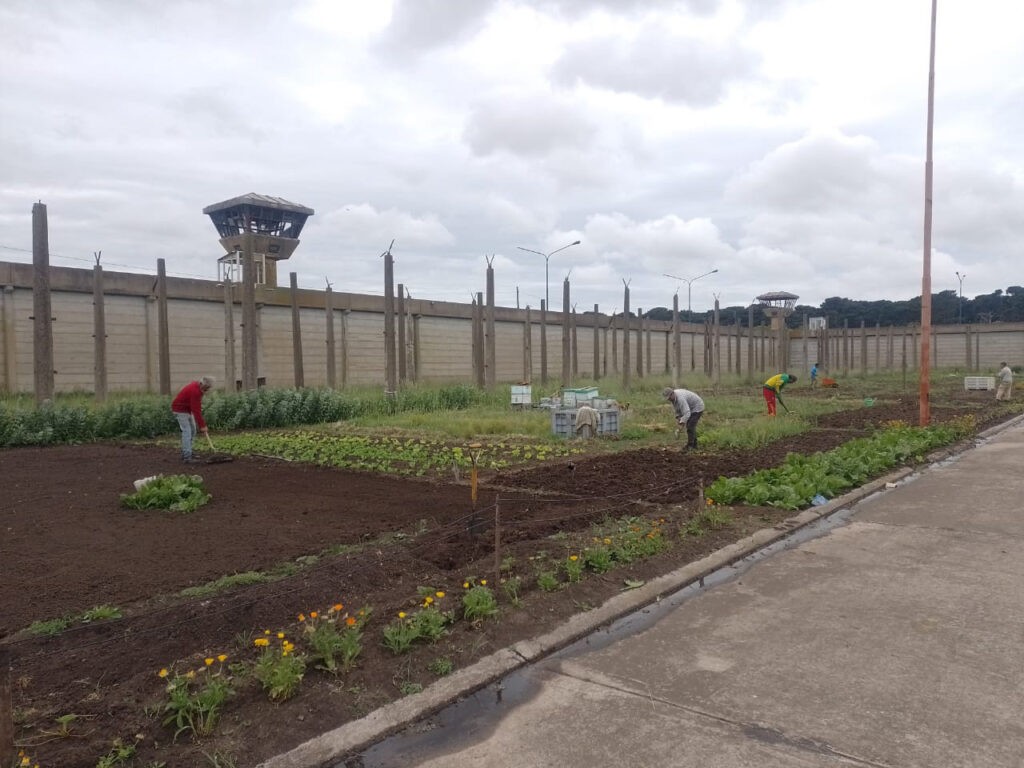In Unit 15 of the maximum security prison of Batán, Argentina, there exists a self-proclaimed “territory of freedom” called Cooperativa Liberté.
Liberté began in 2014 as a small group of prisoners making and selling handcrafted clocks, with the ultimate aim of becoming more self-reliant when it comes to meeting their basic needs, such as work, education, food and recreation.
Founding member Xavier “Pampa” Aguirreal, explains that from the beginning, it was of the utmost importance that Liberté was run by those in prison, rather than the governors or the state.
After a few years operating within Batán, Liberté began the journey of incorporating as a co-op, following a meeting with Alberto Bavestrello, vice-president of Argentinian co-op apex Cooperar and director of the Argentine Federation of Credit Cooperatives (FACC) .
For Pampa, the main draw of the co-op model was the chance to formalise the work they had been doing.
“When we talked to Alberto about what we were doing, he said, ‘Okay, so you guys are basically a co-op without being a co-op’,” he says. “And so the main thing was to have it all formalised and legal.”
Liberté became Argentina’s first ever prison co-op in 2021, after overcoming a number of challenges relating to the paperwork needed to incorporate.

To date, it has worked with over 1,000 incarcerated people on various projects, including carpentry, blacksmithing, handicrafts, beekeeping and organic gardening, as well as running spaces such as a library, grocers and restaurant inside the prison.
Liberté has also partnered with the University of Mar del Plata to deliver a diploma to thousands of students including both prisoners and prison officers, and even has its own AI tool, euGENIA, that can provide useful information to people in prison and their families on the outside.
“All this is not only the work of the members of Liberté but also of a large network of people and institutions trusting and believing in us,” states the co-op.
José Hernán Orbaiceta, honorary director of Cooperar, and member of the Red de Municipios Cooperafivos, says Liberté “shows the co-op movement that co-operativism is done by people – and that even in the hell that is jail and prison, people are still willing to co-operate.”
Argentinian law gives prisoners the right to work within the jail system, but the co-op wants this to be self-directed and dignified.
Related: Puerto Rican government sets up inmates’ co-op in maximum-security prison
“While they are inside, prisoners are fighting to maintain the rights to work and educate themselves with dignity,” says Orbaiceta. “Liberté has created a little space, a little territory of freedom inside of the jail.”
Liberté was the first of its kind in Argentina, and has since supported others to set up co-operatives in prisons – and it is also part of a wider group of prison co-ops scattered around the world, most of which have been established in recent decades.
In the 1990s, changes to the law regarding Italy’s social co-operatives prompted the development of a number of prison co-ops across the country, including Freedhome, a network of 40 co-ops that sells clothing, toiletries and food and drink produced by around 2,000 Italian prisoners.
In Puerto Rico, prisoners petitioned for a law change that allowed them to set up Cooperativa Arigos, a co-op that originally grew from an art therapy group, and prompted the development of more Puerto Rican prison co-ops in the areas of agriculture, crafts and technology.

The Mekelle Prison Project in Ethiopia, funded by the Italian Development Cooperation in 2012, led to the creation of 31 co-operatives providing decent work to men and women in prison.
Research conducted by Jessica Gordon-Nembhard and Esther West last year examined the different elements that help or hinder the work of prison co-operatives.
Conditions relating to the prison itself, including lower levels of security, enthusiasm of individual wardens, and empowerment approaches to rehabilitation, were found to be important in supporting the development of prison co-ops, as were the attitudes of prisoners.
The report states that, while teaching in a United States prison, Gordon-Nembhard found “her incarcerated students, not just the prison authorities, were most interested in co-operative economics and co-op business training if they could see it tied to financial rewards and realistic, viable opportunities to incubate a co-op especially once they were released … Money and pragmatism are factors on all sides, for all stakeholders; and being able to practice what they are learning – and see examples of how it works – is important to incarcerated people themselves.”
There are currently no examples of prison co-ops on the US mainland, though groups such as the Let Us Contribute Initiative are campaigning for legislation that would allow for the creation of co-operatives inside California’s prisons, as a route to economic justice and improved public safety.
Gordon-Nembhard and West’s research found supportive legislation to be key for prison co-ops to take root and thrive, as seen with the examples in Italy and Puerto Rico.
But perhaps most important of all was the support of a wider co-operative community and ecosystem.

“Examples of successful co-operatives in prisons such as those in Puerto Rico, Italy, Ethiopia, and Brazil, all have formidable co-operative ecosystems that provide ongoing, sustained advocacy and support”, states Gordon-Nembhard and West’s research.
The study cites multiple examples of prison co-ops bolstered by supportive co-operative apexes, such as the Puerto Rican League of Cooperatives and the Brazilian Organization of Cooperatives, and this can also be seen clearly in the relationship between Liberté and Argentina’s co-op bodies.
“Co-op ecosystem organisations and institutions understand the co-op model the best and so are the best groups to ensure that the co-op values and principles remain at play and are enforced at every level,” says the study. “The resources (human, pedagogical, legal, and financial) and capacity building provided by strong co-op ecosystems are also important.”
It adds: “It is important not just that there exist the right set of laws and policies to enable this work, but also that there are strong consistent supports coming from institutions, organisations, and people that understand, embody and uphold all the values and principles of economic co-operation and solidarity.”
As well as being dependent on this ecosystem themselves, prison co-ops offer incarcerated people a chance to connect with a community beyond the prison gates, which has implications for preventing recidivism.
Of those Liberté has worked with, 104 have been released, none of whom have reoffended, and other prison co-ops also show lower than average levels of recidivism.

“The more you can maintain local links, the better,” says Colin Talbot, a political scientist who sat on the review of the UK HM Prison Service management in the 1990s.
“Part of the problem in the UK is we’ve moved, over decades, to a warehouse model of prisons, where it’s cheaper to build very large prisons outside towns and cities,” he adds.
“What’s needed is a long-term strategy to reform the way prisons operate, so that the rehabilitation part of it, which is what co-ops in prisons would be about, actually becomes more of a reality than it is at the moment.”
The UK currently has no co-operatives operating within prisons, though the minister for prisons, probation and reducing reoffending, James Timpson, is an advocate of decent work opportunities for formerly incarcerated people.
Timpson was previously head of his family’s eponymous retail chain, and gained a reputation for positive hiring practices of ex-offenders. While not a co-op, the business employs an “upside down management” style that gives frontline workers the autonomy needed to serve customers effectively. Timpson’s outlook, coupled with a record number of Co-op Party MPs now in Westminster, could increase the potential for prison co-ops making their way to the UK.
Becoming a co-operative meant that Liberté could do more in Batán, but it also opened the door to a wider supportive network outside of the prison walls. As well as co-op support bodies like Cooperar and FACC, Liberté collaborates with a host of different organisations in its work, from community groups to media organisations to educational institutions.
Liberté’s secretary, Diana Márquez, is also part of a group called Victims for Peace, which represents survivors of serious crime.
Márquez explains that for her and other members of Victims for Peace, getting to know this “space of freedom” has been like reparation for them.
Thinking about the future and life after his sentence, Pampa looks forward to continuing working with Liberté.
Quoting his colleague Bavestrello, Pampa adds: “If they thought that Liberté ended with the walls, they were mistaken. Liberte goes way outside just the jail.”

